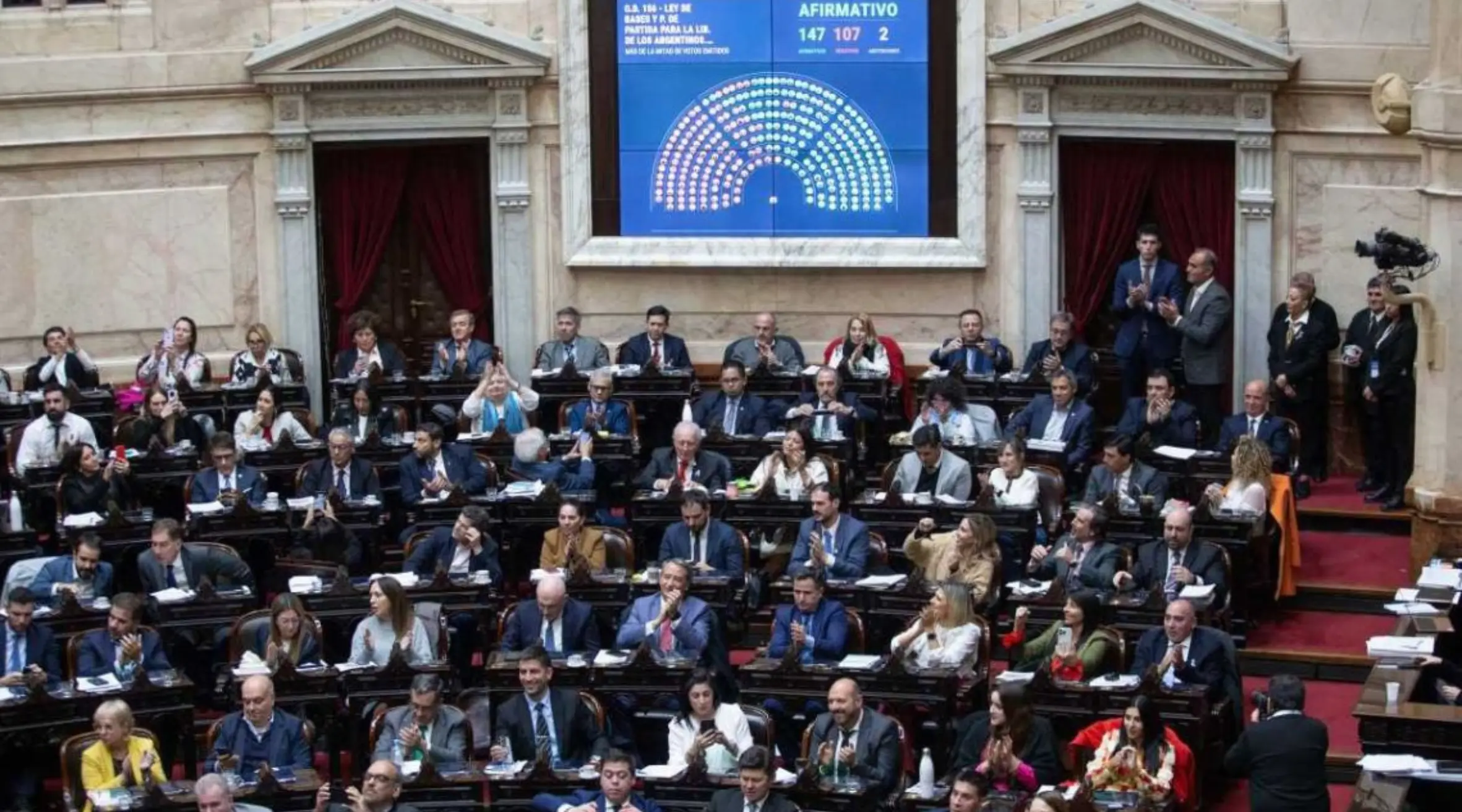USA (Transatlantic Today) – President Javier Milei has secured his first significant legislative victory since taking office over six months ago. The Chamber of Deputies approved a streamlined version of his comprehensive economic reform plan, the ‘Ley de Bases’, with 147 votes in favor, 107 against, and 2 abstentions. This legislative success includes the reinstatement of income tax on salaries.
Economic Reforms Amid Opposition
After a lengthy 14-hour debate, the lower house passed the bill with an accompanying fiscal package. Despite Milei’s party being in the minority in both houses, the administration celebrated the approval, thanking the deputies and senators who supported the bill. The libertarian government praised the lawmakers for understanding their “historic responsibility” and overcoming the “obstructionism of Kirchnerism and its usual accomplices.”
Coalition Support and Opposition
The bill garnered support from various political groups, including PRO, the Unión Cívica Radical (UCR), and other minority forces, while facing opposition from the Unión por la Patria, Frente de Izquierda caucuses, and the socialist deputies of Santa Fe. Milei hailed the legislative approval as the “greatest fiscal adjustment in Argentina’s history.”
Broad Legislative Powers
The approved reforms grant Milei the authority to declare a one-year state of economic emergency, dismantle federal agencies, and privatize public companies. These measures also aim to weaken labor protections and offer tax, customs, and foreign exchange incentives to attract foreign investment. Notably, foreign firms investing over US$200 million over 30 years will receive benefits.
Protests and Controversy
According to Batimes, following the bill’s preliminary approval, protesters were confronted with police use of pepper spray, water cannons, and rubber bullets. Despite this, the final vote proceeded without significant incident. Ruling party caucus chief Gabriel Bornoroni stressed the importance of the law in reforming the state.
Fiscal Austerity Measures
To fight persistent inflation, Milei’s government has put in place a strict fiscal austerity program to have a “zero budget deficit” by the end of 2024. This has resulted in significant devaluation of the peso and drastic budget cuts that have affected buying power.
Political and Economic Implications
Political analyst Pablo Tigani described the legislative approval as a significant political success but warned of economic repercussions reminiscent of the 1990s, with deregulation and privatization potentially harming local industries. Despite this legislative win, Tigani expressed concerns about Milei’s governability amid the country’s economic and social challenges.
Adjusted Reform Package
The original ‘Ley de Bases’ proposal contained over 600 articles aimed at liberalizing the economy. However, after a failed vote in February, the bill was reduced to 238 articles. Key exclusions from the final version included the privatization of Aerolíneas Argentinas, Correo Argentino, and state media outlets, as well as a controversial pension reform.
Next Steps
The area around the National Congress was secured in anticipation of protests, which remained relatively calm. President Milei now has the authority to sign the law into force or veto it in whole or partly.


























